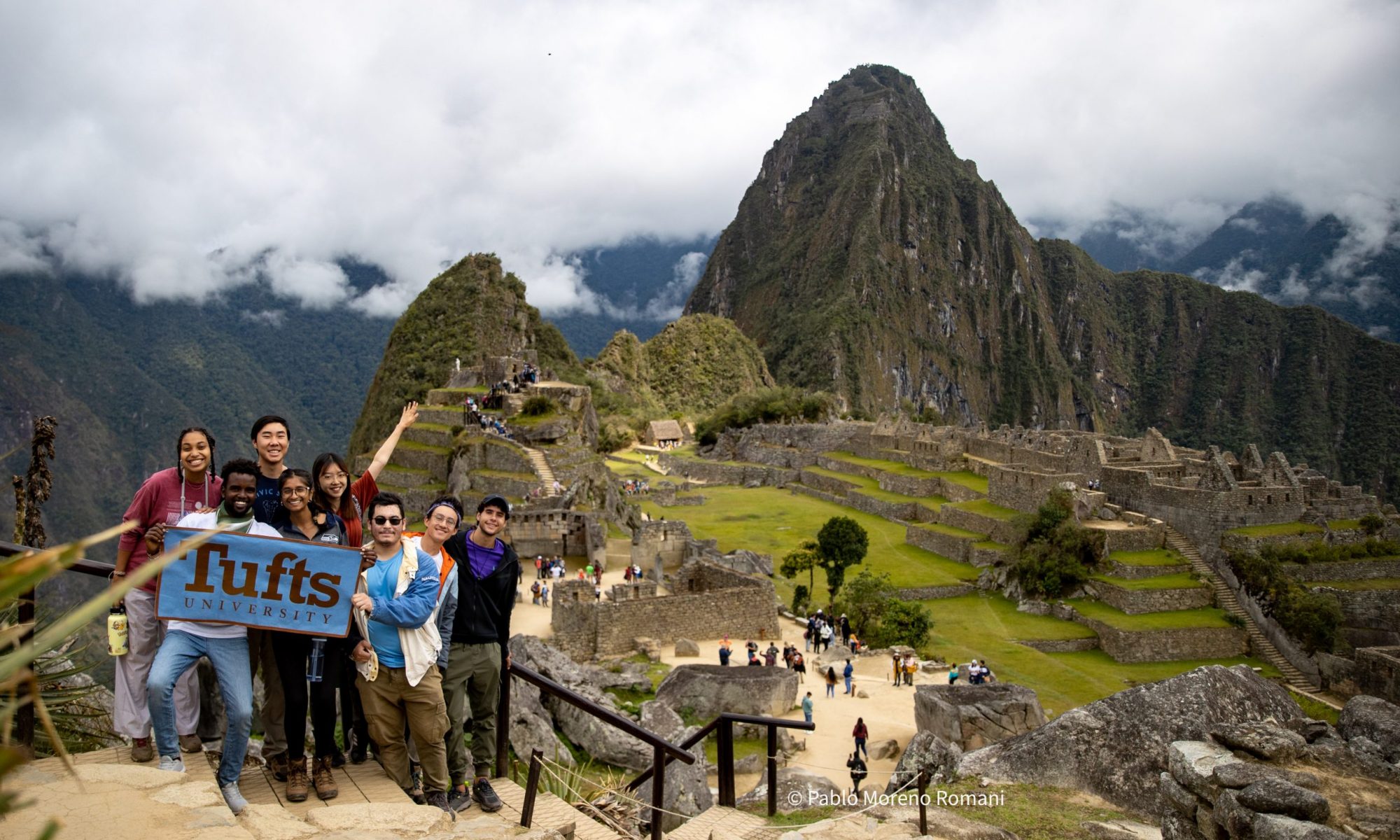by Nadia, Tufts 1+4 Participant
I have been having a hard time, lately, in deciphering how I feel, why I feel that way, and dealing with the inevitable aftermath. This experience has given as many valleys as it has mountains. I’ve teared up thinking about staying a whole other 8 months as much as I’ve teared up thinking about eventually having to leave. As a result, I have had to fall back on various coping methods I know well. Some have worked out fantastic, and some have not. Some cost money, and some are just better decisions than others. One of the methods I keep using without even really trying to do so is that of expressing myself through written word.
lovely, lovely, lovely, lovely, lovely, lovely,
sugar sweet soft skinny sickly suave
honey yielding tender flesh
baby doll glass-eyed twinkling
sparkle * !
are you busy? are you going?
can you answer?
girl come back
girl come
girl is you hungry
girl is you wanting
girl is you is you is you
will you will you will you
are you are you are you
smiling smile mine
touch
me, dream come true, sit awhile
i can show you God
Destroyer of Worlds, Sin Punisher
i can show you sharpened teeth
who will i who will i who will i
all the coins are silver
and in the broken mirror, shine
blood
the drip drip drips on my shoes
but you can spit shine those
you can be my payment
you can be my sugar, neighbor,
have you any sugar
for me
for me the law is resold
bought with empty pockets
show me your claws girl
girl don’t close your eyes
girl i want my pound of flesh
and this tongue is the scale
come a little closer
stay a little longer
walk a little slower
smile a little wider
Buenas is my middle name
estoy bien señor
sugar sweet sun-burnt sap
silence
silence
silence
g o n e
welcome home
alone living? here viva jodido

aquí soñamos con la fuerza
de nuestra Madre, Esa Señora,
si Señora, nuestra ave, nuestra Dama,
la lluvia
lluvia
llueve
llora
llore
y en la distancia viene todo-
la vida crece solo por crecer
square feet by square feet
plastic do confine this land
fences do not call themselves fences
but it alright
the sand is soft
we name our disasters the names
we might call our daughters
and shut our eyes so tight
we cannot help but see
the ocean rolling-
sweeping expanse of froth
at the mouth, no one does that
with a frown
(ain’t you heard, the first
sign is always a smile-
pointed glint and you
too proud)
something cursed happened here
if you stand too long here
there are souls pushing, scratching,
digging their way back to the Heaven
that was denied them
and you.
you still
you silent
you looking
you gate fence
you daughter’s name
something cursed, something powerful happened
here is a curse, here it happened
curses happened here, this land be
here not a curse but this an alphabet
we don’t decipher
enscribed painstakingly
pain
staking
ly
by…
i don’t think it was the claws that did dig
and my feet do look monstrous in this light
how funny every church face West
yet I wake up East
going South
looking North
walking backwards into the arms
of snapping, wailing winds I cannot see
and my eardrums hollow
promises color the walls
and Names echo,
smiles, frowns, glints, sparkles
this not a story I know
this not an ending I predicted
what i mean to say is
i would like to think that
Land Like This
would be littered with Old
Stories, Promises, Tales, Names-
none of them mine
and i think that might be
an omen
























